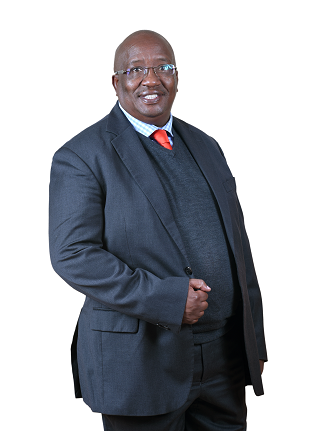Only policy change will bring about an equal and just world for women

Mr Aubrey Louw from the SBL
Real change on gender equality issues will not come until there is policy change, and if DBL student Michel Mzondo has her way, policy change there will be.
“I dream of an equal and just world where women can thrive, not just survive,” says Michel, a Human Resources Specialist Gender Activist who is using every avenue available to her to turn that dream into reality.
In February 2020, she had the opportunity to participate in the African Union’s Gender Summit in Addis Ababa, Ethiopia. “I was part of the Women and in Governance technical working group whose role was to helpset the gender agenda of the African Union for the year,” she explains.
A few years before that, she was part of a six-month-long campaign, #breaktheglass, run under the United Nations UN Women Empower Women programme to help women make it through the proverbial glass ceiling.
“That campaign really resonated with me,” says Michel. “I used to work in corporate HR in the retail sector where I faced many challenges as a young mother and black woman.”
Now at Hivos, an international social justice NGO, where she is in her element, “everything has come is coming together”, from her studies to her work.
As part of the organisation’s Women Empowered for Leadership (WE4L) programme, Michel was tasked member of the team that to conduct a research study on the impact of the Covid-19 pandemic on women in Malawi, Zambia and Zimbabwe.1
Covid-19 takes its toll on women
The findings were illuminating, showing in no uncertain terms that the pandemic was taking its toll on the income, stress levels and work-life balance of women in all three countries.
In Zambia, more than half of the respondents said their income had been greatly affected by the pandemic, while the figure in Zimbabwe was above 64% and in Malawi it was as high as 79%.
Working from home posed massive challenges for many women in these countries, who said they had struggled to cope with the many distractions at home and to balance the demands of work and families. However, relatively few respondents had access to basic counselling services, especially in Malawi, where counselling was out of the reach of 80% of the respondents.
While well under 10% of women reported being affected by sexual and gender-based violence as a result of the pandemic, more than 40% of women in each country said they personally knew someone who had been affected in this way.
The women had high levels of awareness about who to call or where to go should they need help or shelter, with Zambia the lowest at just over 45% and Malawi and Zimbabwe at 83.6% and 90% respectively.
Meanwhile, Michel is taking her gender-focused research through her studies at the Unisa SBL. Having already completed her MBL, she is now in the second year of her DBL under the supervision of Professor Peliwe Mnguni.
Publish date: 2020-09-11 00:00:00.0
Contact the Marketing and Communication office: Mr Aubrey Louw at louwwa@unisa.ac.za
011 652 0365
Telephone: +27 11 652 0248 / +27 11 652 0291
Email: sbl@unisa.ac.za
Physical Address:
Cnr Janadel and Alexandra Avenues
Midrand, 1686
Gauteng, South Africa
Download map & directions (PDF)